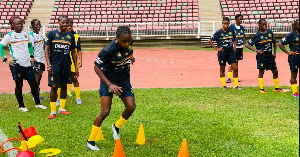Several activities in Cameroon’s largest city, Douala, are illegal.
Time For Sanctions
To begin with, motorcycles, commonly called ‘bend skins,’ were earlier flushed out of some areas while traders were dislodged from major roads. For some weeks now, local authorities have been seizing tricycles, closing roadside businesses and impounding their merchandise. Some motorcycles plying unauthorised neighbourhoods have equally been impounded. This is just one of several drastic measures by local authorities after a period of tolerance. Still, the situation requires constant sensitisation, education and more stringent policies such as deploying municipal police on a permanent basis at all illegally occupied areas.
‘Bend skins’
In a clear act of violation of rules, motorcycles (commercial and private) have bounced back to the streets in areas where their operations were forbidden. It is common to spot riders dropping off or picking up passengers at all times of the day or night in Deido, Bali, Bonapriso, Koumassi and Bonanjo. A ban was slammed on motorcycles plying Deido in January 2012 by the then Senior Divisional Officer for Wouri, Bernard Okalia Bilai.
By June 12, 2012, motorcycles were finally prohibited in Bonapriso, Bali and Koumassi after Bonanjo, pursuant to Prime Ministerial Order No 2008/3447/PM of December 31, 2008, regulating the commercial motorcycle sector. Although local authorities remain committed to implementing the various bans, daring riders continue to operate in these neighbourhoods. Any motorcycle plying the areas without authorisation from the SDO is simply impounded.
Tricycles
Over the years, tricycles have been gaining popularity as a means of passenger transport across Douala, competing with motorcycle and car taxis, which have been successfully pushed out of operation. The authorities banned their transportation of people anywhere across the Littoral Region. Littoral Governor, Joseph Beti Assomo, banned the activity in 2012.
While tricycles continue to transport people, not only goods, it is worth noting that action will soon be taken against them. Garages and other workshops readapting the three-wheel vehicles will be simply shut down. Last week, 10 tricycles without required papers were seized by the authorities.
Trucks
In the heart of New Bell and on (not even beside) nicely tarred roads, are several trucks parked in violation of the Highway Code and Douala II Municipal Council’s regulations. Coupled with this, are a myriad of insecurity challenges that now pose threat to life there. Thieves now hide under the trucks at night to assault passersby. The Council has resorted to coercive measures, but to no avail as truck owners instead threaten to use violence, according to one neighbourhood leader. As a result, the risk of serious accidents is high because there is limited or no space for pedestrians.
Markets
What has become known as ‘spontaneous markets’ in Douala is a veritable upset to any well-thinking inhabitant. Many of them are makeshift roadside structures, which for the most part, are responsible for traffic congestion and accidents in the port city. In this regard, the Douala City Council has begun sending traders off the roads. A joint security patrol and agents of the Council recently picked up several small counters and dislodged every illegal structure in unauthorized areas.
It is expected that the team will do the same at ‘Marche Chinois’ around Douche Municipal, ‘Marché Boulevard’ in Nkololoun and ‘Round Point Quatrième’ in Akwa. Here, vehicles as well as buyers and sellers only manage to squeeze their way through as pedestrian pavements and large portions of the roads are occupied by traders.
Buses
Individual transport buses plying the Douala-Moungo-Bafoussam highway load in prohibited areas such as along streets at ‘Trios Boutique,’ Bépanda and Madasgacar, as well as along major streets in the city. They quickly come back to the areas soon after they are dispersed.
Actualités of Friday, 6 March 2015
Source: cameroon-tribune.cm













